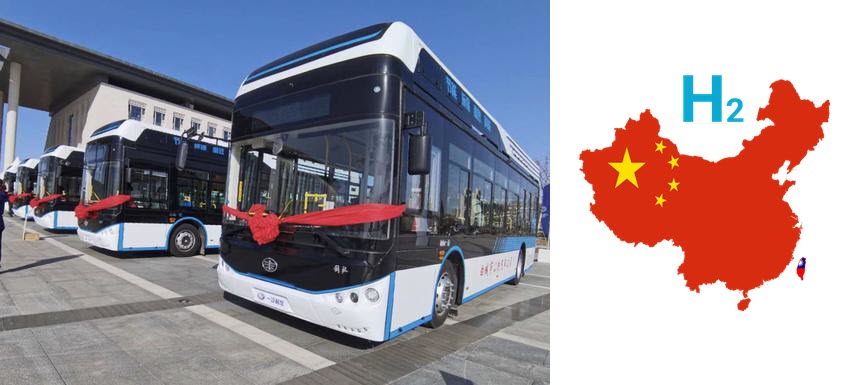
The Beijing Municipal Bureau of Economy and Information Technology on Monday released a new five-year plan for the development of the hydrogen industry, laying out major tasks for industrial chains and relevant applications for the 2021-2025 period.
According to the plan, Beijing will build 37 hydrogen refueling stations and have some 3,000 hydrogen fuel cell vehicles on the road by 2023. The total number of such cars in the city is expected to exceed 10,000 by 2025.
Considered the cleanest fuel, hydrogen fuel is a rich source of energy with high efficiency and diverse applications. The Hydrogen Industrial Technology Innovation Alliance of China (HITIAC) estimates that the output value of the country’s hydrogen industry will amount to one trillion yuan by 2025. By 2050, China’s demand of hydrogen gas will reach approximately 60 million tons. Hydrogen energy will account for over 10% of China’s energy system, and the output value of relevant industrial chains will reach 12 trillion yuan annually.
This brings new opportunities to tap into the industrial potential of coordinated development of the Beijing-Tianjin-Hebei region. As one of the first in China to carry out the R&D of hydrogen fuel cells, the region enjoys advantages such as a strong industrial foundation, diverse hydrogen energy supplies, complete industrial chains, and various application scenarios.
Beijing’s hydrogen energy sector is also moving towards industrialization. Statistics show that the output value of all 150 hydrogen energy-related companies and institutions in Beijing totaled three billion yuan in 2020.
As such, the plan stipulates that Beijing’s hydrogen sector shall see further growth based on the 2022 Beijing Winter Olympics and Paralympics Games and establish five to eight world-leading companies by 2023. The output value of relevant industrial chains in the Beijing-Tianjin-Hebei region will exceed 50 billion yuan – forecast to double by 2025 – reducing carbon emissions to one million tons.
In addition, the plan also released a series of application scenarios of hydrogen energy. For example, during the Beijing Winter Olympics, a total of 212 hydrogen fuel cell shuttle buses will be used to transport visitors and staff in the Yanqing competition zone. These shuttle buses will be repurposed for public transportation purposes after the Games.
In summary, Beijing is building itself into a global hydrogen industry city and a sci-tech innovation center and establishing industrial chains for hydrogen energy and fuel cells.
Source: China.org.cn
Read the most up to date Fuel Cell and Hydrogen Industry news at FuelCellsWorks




